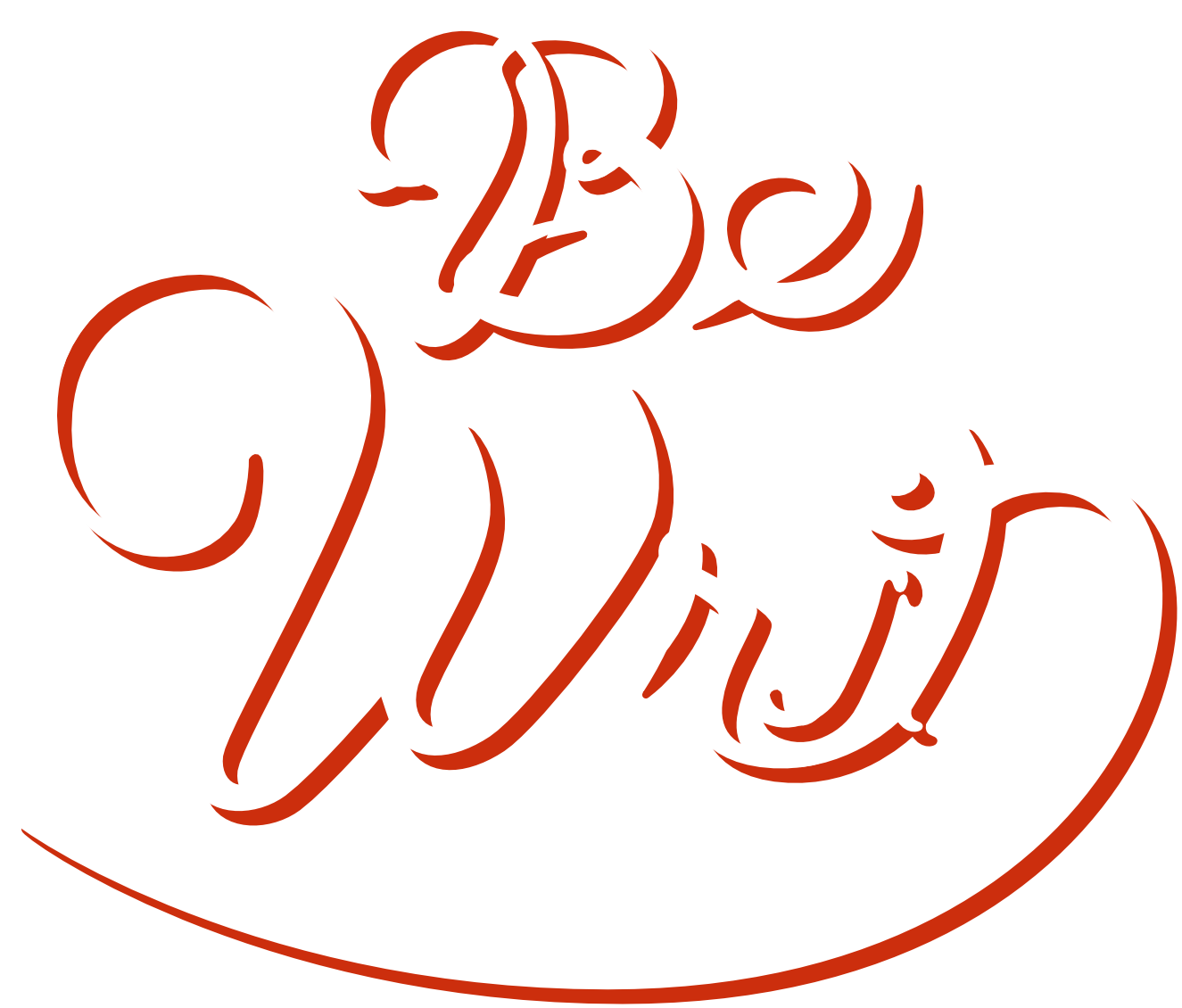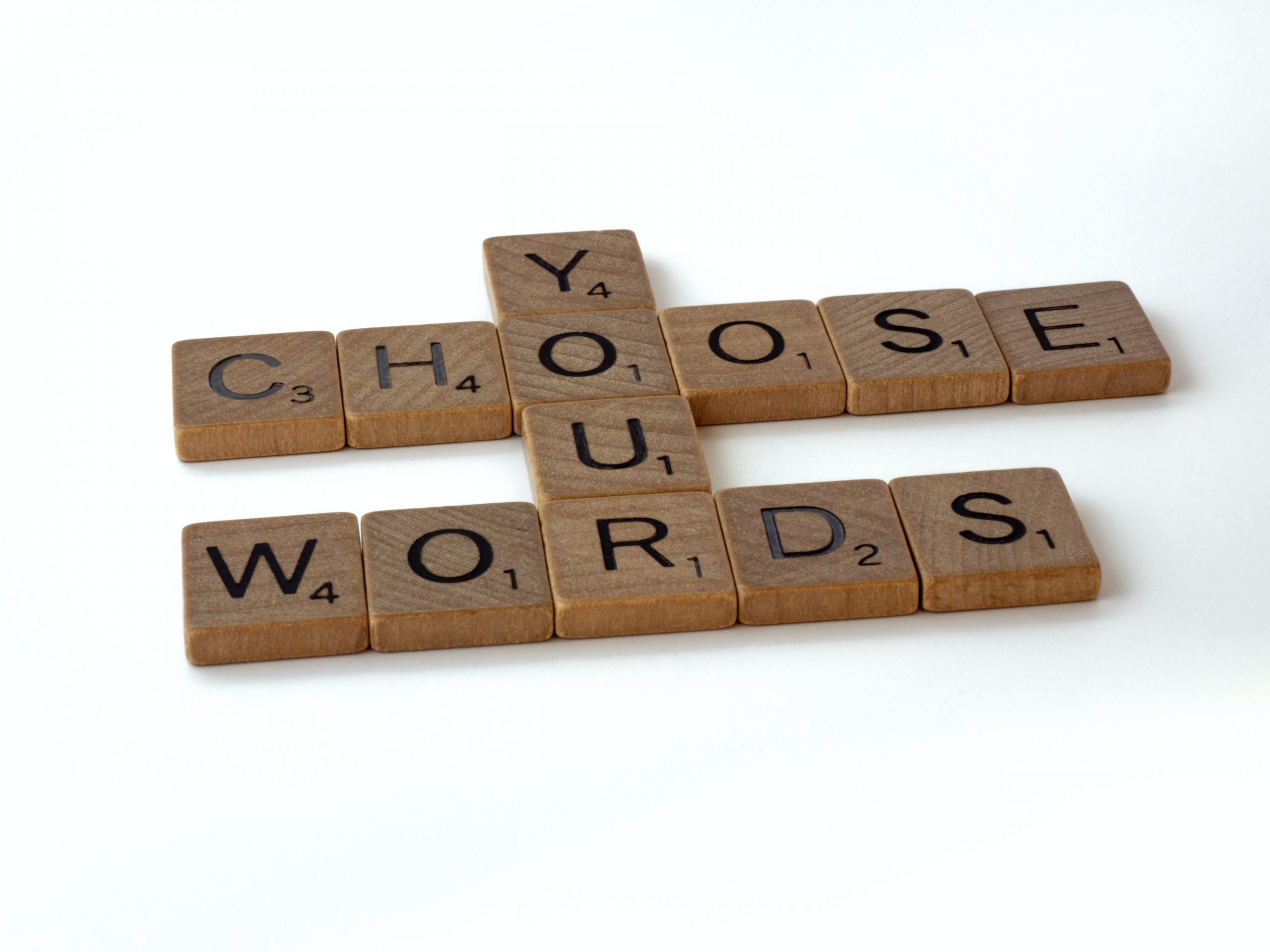
Top 5 Words to Stop Writing Immediately
Disclosure: My blog contains affiliate links, which means I receive a tiny commission from qualifying purchases. Although I may receive a small fee, I link to these companies and products due to quality. Whether or not you decide to buy something is completely up to you. I’d recommend them either way.
Writing is tough work. It's a combination of craft and art, which means the process comes with plenty of researching, learning, thinking, brainstorming, and trying new techniques.
As an aspiring writer, you may start playing with sophisticated writing styles as you try to find your voice. You probably explore using new words and stringing together phrases to mimic the sounds of poetry.
However, the best thing to do if you want to strengthen your writing is to keep your writing simple. Simplicity is the easiest way to improve your writing instantly.
"How do you write simply?" you ask. Well, take a hard look at your sentences. Find what you can cut from them, and see how avoiding certain words helps strengthen your concepts.
To help you write simply, I narrowed the list of words you should avoid writing to the five top options. Write any of these five words, and your writing is instantly weakened. Stop using these words in your writing immediately.
1. Really and Very
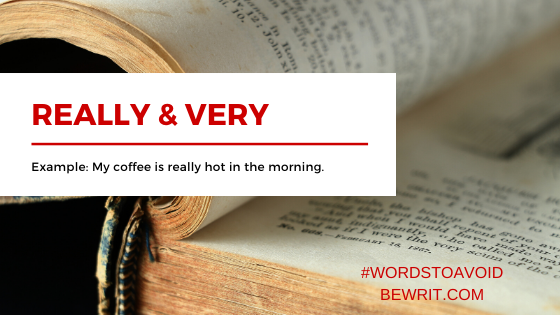
Both "really" and "very" are never necessary. These words don't paint a description of the scene, and they don't aid any type of writing.
Instead, describe what you hope the reader sees in their imagination. Write, "his breath was chill as ice" over "his breath was very cold."
Most of the time, you don't need "really" or "very." Mark Twain once said writers should substitute the word "damn" in place of "really" or "very." Later, your editor deletes the "damn," and your sentences sound perfect.
Using self-containing descriptors works well for adding emphasis too. For example, you'd say "scorching" instead of "really hot."
2. A Lot
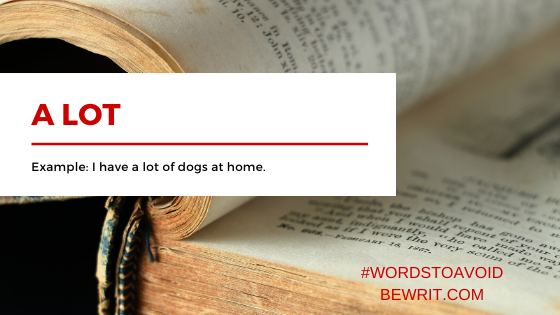
The problem with writing "a lot" is the vagueness. It's highly subjective. A lot could mean anything to different people. As long as you have more of something than you did, it could be "a lot."
Without the right context, "a lot" is also completely meaningless. But with context, the phrase is unnecessary. It's better always to skip using "a lot" in your writing.
3. Sort of/Kind of
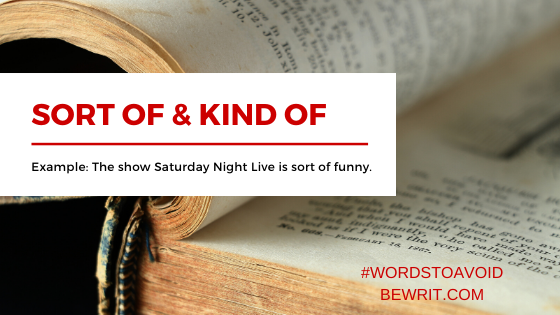
Reading "sort of" or "kind of" is annoying for multiple reasons. The main reason is that the phrases are vague. If you told the reader something is "sort of" funny, you're not precisely showing them what is funny or how funny it truly is.
Scratch these phrases. Tell the reader what is and be direct. Find words with straightforward descriptions for what you're trying to say. For example, "Write what you sort of want to say" is more powerful as "Write what you know."
4. Just
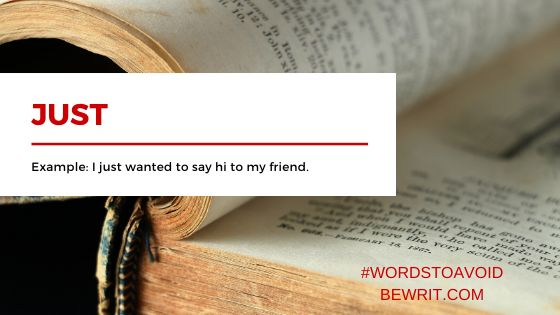
Give your writing a serious confidence boost by ignoring the word "just." The only thing using "just" in your writing accomplishes is helping you sound unsure. It doesn't add real value.
Almost every time you're inclined to use "just" in a sentence, leaving the word out results in the same meaning. However, the sentence you create is much stronger, tighter, and more direct.
Do you see how the sentence "I just wanted to say hi" sounds insecure?
5. That
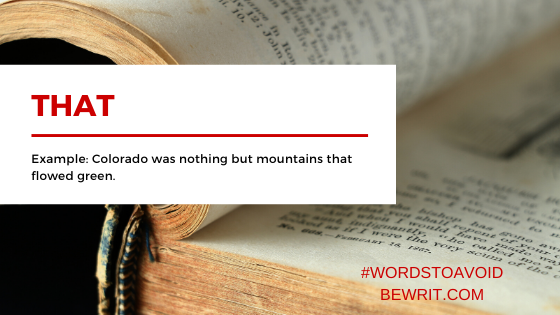
The word "that" often adds clarity in a sentence, but most of the time, people use it as a description. When this happens, your sentence almost always sounds better if you move the description before the term and cut "that" altogether.
For example, "Colorado was nothing but mountains that flowed green" sounds better as "Colorado was nothing but flowing green mountains." The image is more powerful, and there's no pesky "that" slowing down the sentence flow.
How Do You Avoid Writing These Words?
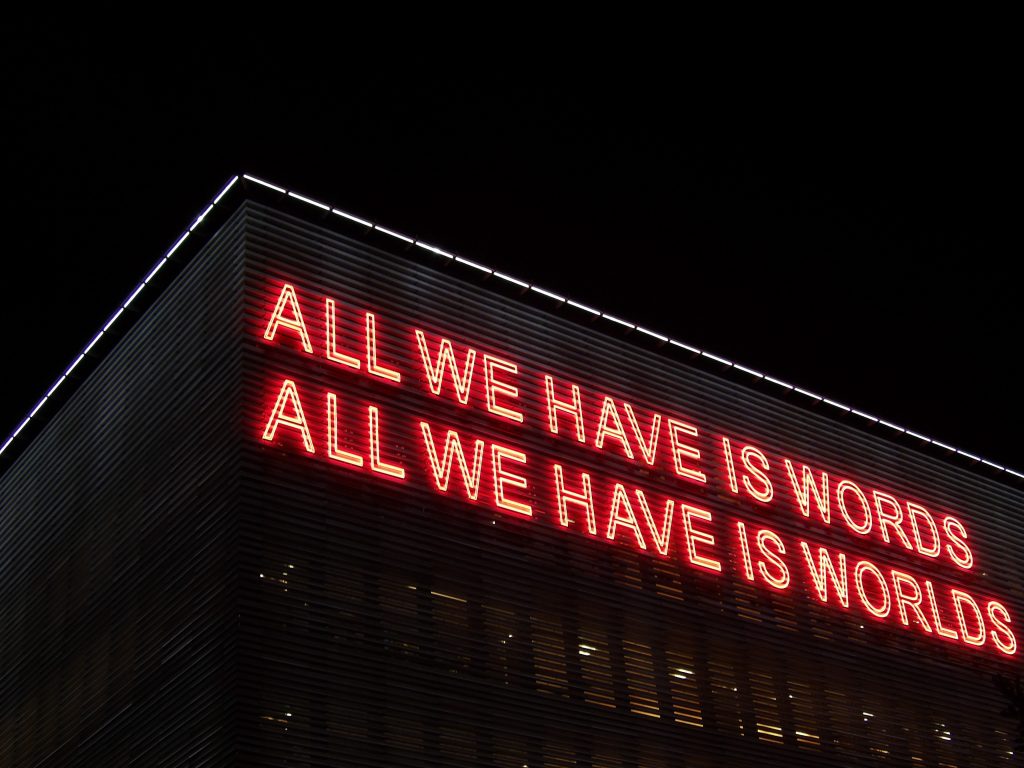
While I show you many examples of how these 5 words demonstrate poor writing above, you'll find plenty of decent uses too. Writing is a craft, not a science.
Sometimes these words work well in context, especially when you want to show the world as it is, such as with dialogue. Word choice depends on the purpose, audience, and so many other things.
That said, you don't need these 5 words most of the time -- no matter what type of writing you do. If you're not sure when to use them or not, a good rule of thumb is to avoid use.
After you think your writing is complete, always edit your work for the best results. If you're not sure what to do, there are a few things to try. You can complete a quick English grammar check by:
- Using my link for free online proofreading tools like Grammarly, which even offers a plagiarism checker
- Explore Grammar Girl's Quick and Dirty Tips for Better Writing podcast for tips regularly or when you run into questions
- Ask a pro! I'm always here to help with all your writing needs.
Professional editors cut confusing and troublesome words immediately for a reason. Powerful prose requires killing unnecessary phrases or words from your text. Writing is all about finding ways to describe what you see, hear, feel, etc.
However, inexperienced writers must pay attention to how they use (and avoid using) these words. More often than not, these five words only gum up your text.
Play with words to find better phrases and apply these writing tips consistently in anything you write. With practice, you may begin trimming the fat from your writing and naturally form polished writing like a pro.


